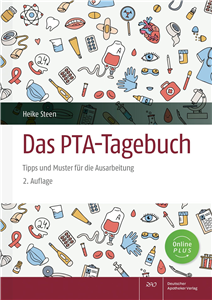Textbook for pharmacy interns
Handbook for the pharmacy
After pharmacy studies have ended, the fascinating world of the pharmacy awaits –
simultaneously varied and challenging. This is no problem with this well-established
standard work to hand! The 7th edition, with a new editor and new structure, goes through
the various stages of pharmacy operation. Beginning with the social mandate to supply
medicines and then considering the organisational and economic orientation of
a pharmacy, one delves ever deeper into its inner workings.
In every area, the appropriate specific information can be found about pharmaceutical law
and practice – whether this concerns the back office, over-the-counter medicines,
dispensary and dispensing, or the supply of care homes, or preparation of cytotoxic drugs.
In addition to the important topic “Dispensing of drugs and medical devices on prescription”,
particular attention is paid to the principal activity in the pharmacy – giving advice
on self-medication.
The contents are based on the regulations for registration of pharmacists and the guidelines
of the Federal Chamber of Pharmacists for the practical training of pharmacy interns in the
pharmacy. The Practice of Pharmacy safely navigates the user through the practical training
year and is the ideal preparation for the 3rd State Examination! Returnees, pharmacies that
provide training and pharmacists of many years’ experience, will also benefit from this
textbook and reference work.





















